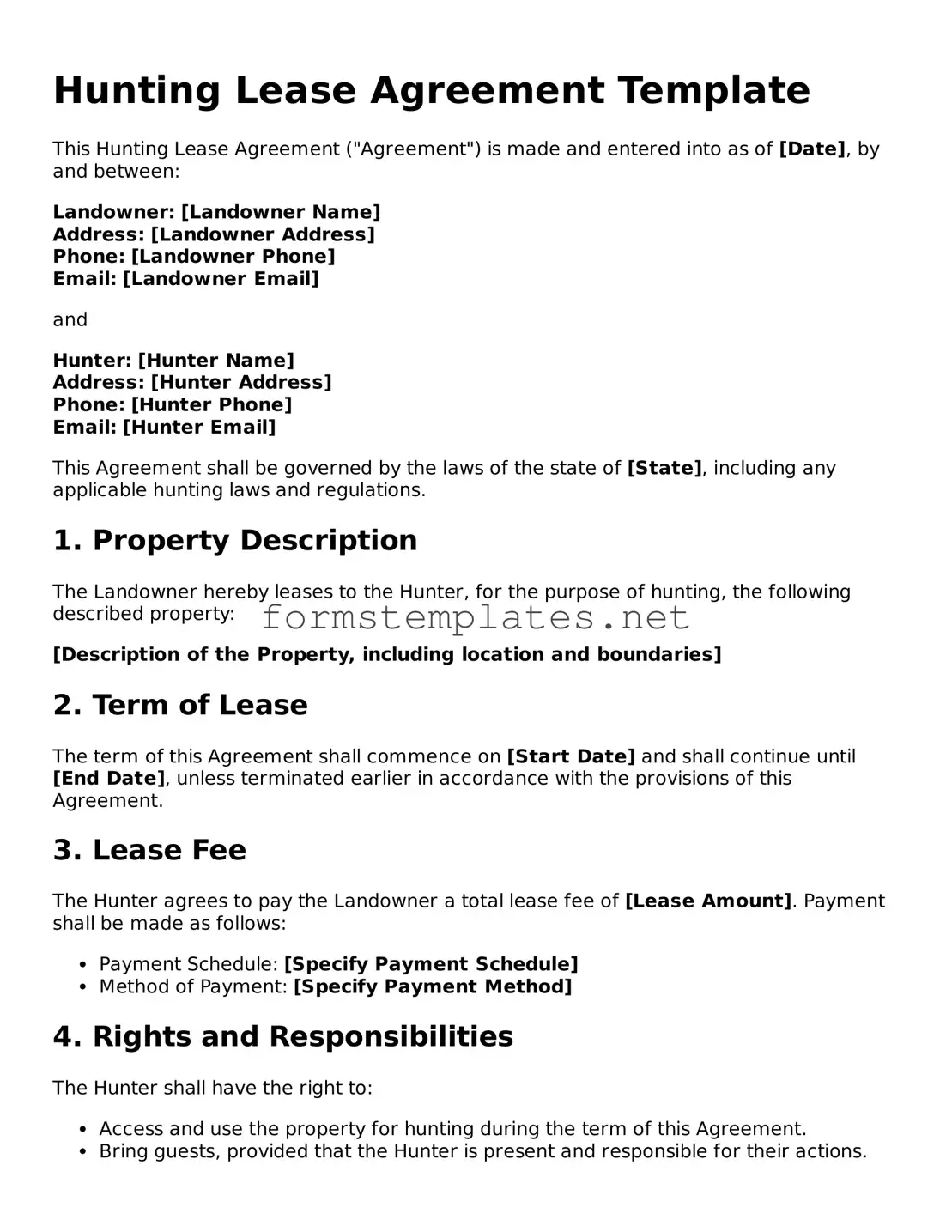Attorney-Verified Hunting Lease Agreement Form
A Hunting Lease Agreement is a legal document that outlines the terms and conditions under which one party grants another the right to hunt on their property. This agreement protects both the landowner and the hunter by clearly defining responsibilities, permissions, and limitations. Understanding this form is essential for anyone involved in hunting activities on private land.
Open Editor Now

Attorney-Verified Hunting Lease Agreement Form
Open Editor Now

Open Editor Now
or
⇓ PDF Form
Your form still needs attention
Finalize Hunting Lease Agreement online — simple edits, saving, and download.